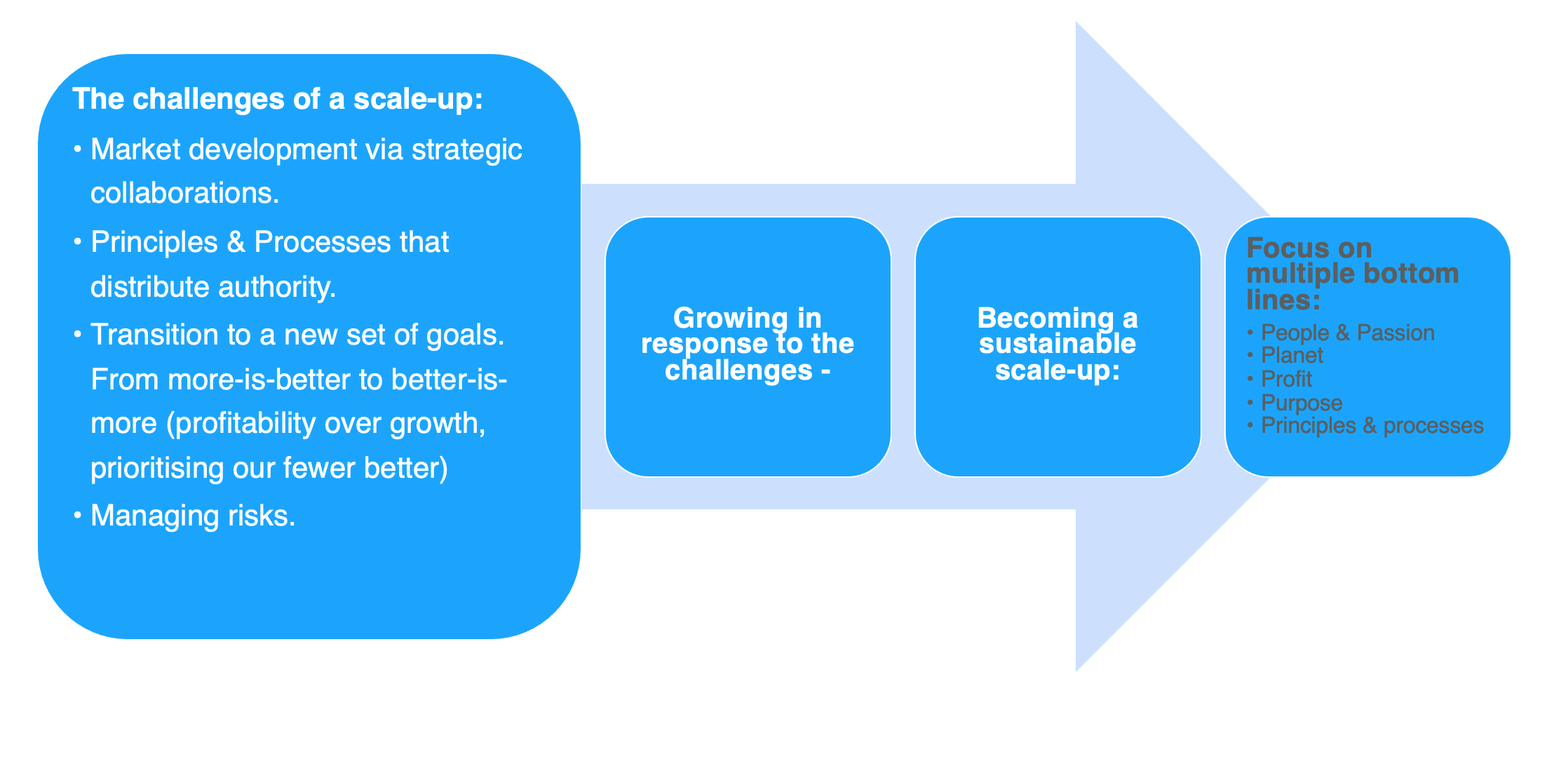When does a startup become a scaleup?
It’s not about size
Becoming a scaleup is not so much about size, it’s about the challenges you are facing. As they say: You grow with your challenges. Growing in number of people is just a side effect of responding to those challenges.
A solopreneur who hires virtual assistants to grow the business is a scaleup
As an example, a solopreneur with a proven concept and business model, who decides to hire a couple of virtual assistants and develop strategic partnerships in order to grow, is a scaleup and will face all the challenges listed below.
The Startup is a sprint. “Can we do it?”
In the early stage startup the core question is “Can we do it?” as in, can we find a product market fit and a business model that seems viable. The startup is a sprint and the goal is to learn what the market responds to. Building prototypes with gaffa tape and throwing spaghetti on the wall to see what sticks is a good strategy at this stage.
Challenges of the startup:
Find the product market fit and prove the business model.
Focus of the startup:
validated learning over profitability. The more customers and learning the better.
The Scaleup is a marathon. “Can we do it well?”
Once the core startup challenge of finding the right product-market fit has been solved well enough to start consolidating, the landscape becomes much more complex and the transition is tricky. The core question in the scaleup phase is “Can we do it well?” Doing it well means to grow and thrive while maturing the company. The scaleup is a marathon and different challenges need to be balanced during this stage.
Challenges of the scaleup: maturing the company
Market development via strategic collaboration
Principles & Processes that serve a scaling business and distribute authority.
Risk management
Transition to a new set of goals. From more-is-better to better-is-more (profitability over growth, prioritising our fewer better)
Balancing mixed goals
While the startup has a single focus (validated learning over profitability. The more customers and learning the better.), the sustainable scaleup needs to look at multiple bottom lines below. And the focus is to balance these mixed goals and make them operational for the organisation. The scaleup phase is a very busy time for the leadership team!
Profit: The business needs to be viable to survive and thrive
People & Passion: Is the work environment supporting people's well-being? Functional aliveness means to keep the entrepreneurial drive over time while structure is introduced.
Planet: Are we conscious of resources and how we affect the ecosystem
Purpose: Is our purpose providing us direction and energy, are we staying true to our purpose?
Principles & Processes: must support a healthy, functional organisation and not stifle it with bureaucracy.
To change the world you must start with yourself
Most startups want to change the world in a positive way, but in order to help the world, they also need to to focus on their own sustainability. The SDGs apply to the inside of the organisation as well as it’s impact on the world. https://sdgs.un.org/goals
How do you become a sustainable scaleup then?
By responding well to the challenges. A scaleup that fails to respond to the new set of challenges is likely to see some of these symptoms:
Just running faster (lack of structure and new goals)
Control, the founder is part of every decision (the founder trap)
Lack of clarity. Everything is a priority
Lack of depth. Not having the right people or time to develop them.
Sources:
Ichak Adizes, corporate lifecycles https://adizes.com/lifecycle/
Joseph Picken, from startup to scaleup enterprise
David Finkel, Freedom Formula and Scale.



